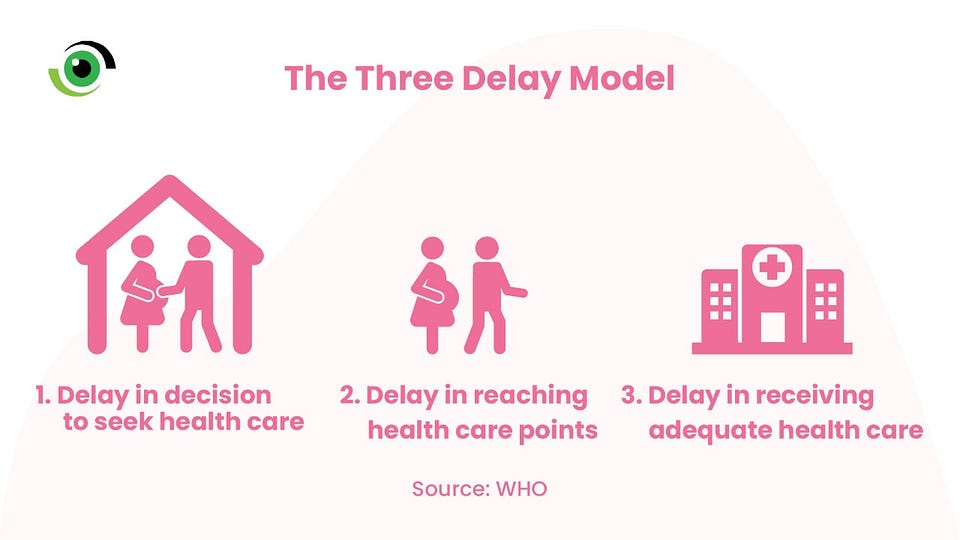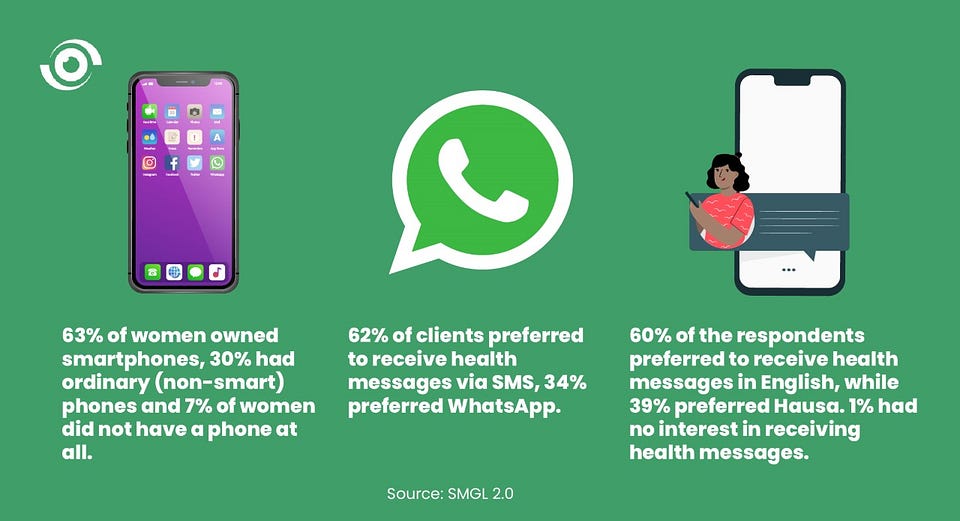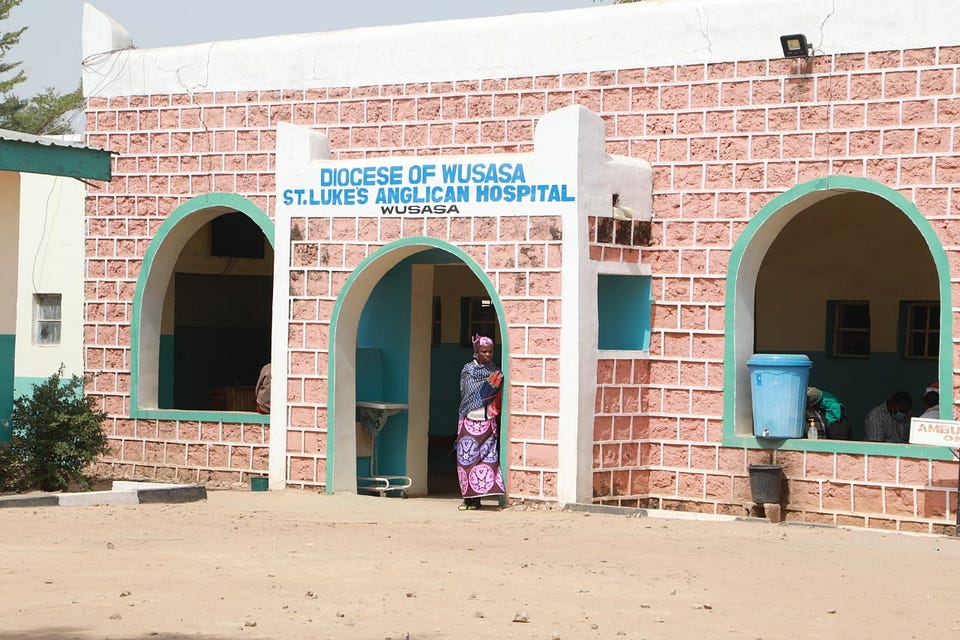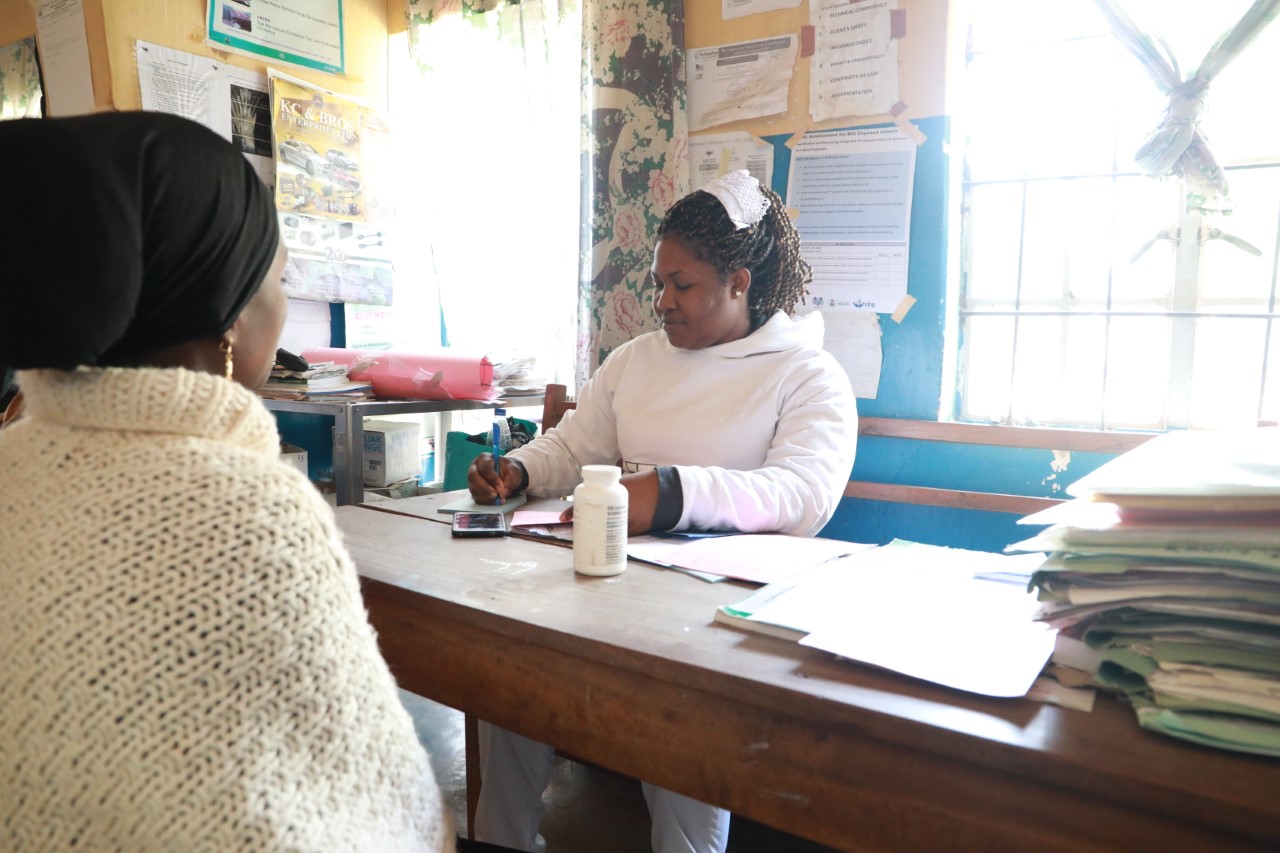In 2021, we discussed the first phase of the Saving Mothers Giving Life (SMGL) project which was implemented in Cross River State; and introduced SMGL 2.0, the second phase of the initiative being implemented by Pathfinder International with the aim of improving access to maternal and newborn health services and strengthening collaboration and partnership between the Kaduna State Ministry of Health and the private health sector.
The SMGL 2.0 project utilises the three-delays model in identifying barriers to scale-up healthcare for women of reproductive age and newborns, as well as, providing solutions for them. The model postulates that maternal and perinatal deaths occur due to one or some of three delays — delay in seeking care, delay in reaching care, and delay in receiving care.

The project takes a three-pronged total market approach to improve health-seeking behaviours and increase facility deliveries by;
- Engaging and strengthening private facilities
- Refining and adapting a comprehensive quality-improvement model
- Working with communities, with more focus on the traditional birth attendants and other norm holders
SMGL 2.0 in Kaduna State — Progress so far
To achieve its objectives, SMGL 2.0 which began in 2020 — and ending in 2022 — is improving access to maternal and neonatal health (MNH) by supporting private facilities in Kaduna State to provide quality Emergency Obstetric Care and Newborn Care (EmONC) services, generating demand for service, and strengthening MNH community structures and collaboration with community stakeholders.
The programme is building the capacity of health workers through training and on-the-job mentoring. Over 150 healthcare providers (103 Females, 50 Males) comprising doctors, nurses, midwives, (CHEWs), and medical records officers have been trained in the service provision areas ranging from EmONC, essential newborn care course (ENCC), postpartum family planning (PPFP), monitoring & evaluation and continuous quality improvement.
Promoting a healthy pregnancy journey
To address some of the factors contributing to the delay in seeking care, particularly poor health seeking behaviour and awareness about key health issues, SMGL 2.0 partnered with ‘Nivi’ to provide pregnant women with information on what to expect in the different stages of their pregnancy. This helps promote a healthy pregnancy journey, while also linking women to appropriate health services.
‘Nivi’ is a digital health service provider that focuses on providing on-demand, trusted, and actionable health information enabling every individual to be more informed and support decisions about their health through an interactive chat service known as ‘AskNivi’ on WhatsApp.
To understand the most effective means to reach clients with health education and health promotion messages through AskNivi, a rapid baseline assessment was conducted following stakeholders’ feedback to determine women’s ownership and utilisation of smartphones and different applications. Findings from the assessment showed that 63% of the women assessed owned smartphones, 30% had ordinary (non-smart) phones and the remaining did not have a phone at all. Additionally, even though 59% of the assessed clients used WhatsApp, 62% preferred to receive health messages via SMS, while only 34% preferred WhatsApp as a platform to receive health messages.

The results also showed that 60% of the respondents preferred to receive health messages in English, while 39% preferred Hausa. Only 1% had no interest in receiving health messages. The SMGL 2.0 team developed a learning brief to widely share the lessons from this rapid assessment.
‘Nivi’ was originally conceptualised under the assumption that disseminating English language messages via WhatsApp would be effective in creating awareness and generating demand for services among pregnant women and women of reproductive age. However, the results revealed that more than one-third of the women surveyed preferred the Hausa language. Results also indicated that SMS will be critical in supporting offline access to information, especially for women who have exhausted their data, who have limited funds to purchase and use data and who have little or no internet connectivity.
Following these results, Nivi is translating the digital message content to Hausa, as well as exploring the possibility of sending messages via SMS, in addition to WhatsApp. These modifications are likely to improve enrollment, which was initially low.
Improving quality
SMGL 2.0, in partnership with PharmAccess Foundation and the Kaduna State government, also introduced the SafeCare Quality Improvement (QI) methodology to supported facilities. This is an innovative approach for improving quality through set standards, benchmarking and improvements, especially for resource-restricted settings.
Facilities work to comply with internationally approved standards of care, moving steadily upwards in quality levels and receiving certifications at each level where certain high-risk criteria have been met. So far, the project staff have been trained as assessors, who in turn have conducted baseline assessments for all the 25 supported private facilities.
Reports of the assessment and Quality Improvement Plans (QIP) generated by the SafeCare platform have also been shared with the facilities for appropriate actions such as quality improvement integration. SMGL 2.0 provides quarterly supervisory visits and online assistance to supported health facilities to guide the implementation of activities on the QI programme.
Additionally, maternal and perinatal death surveillance and response (MPDSR) systems are being set up in all supported health facilities. The goal of MPDSR is to eliminate preventable maternal and perinatal mortality by obtaining and strategically using information surrounding maternal and perinatal deaths to improve systems and guide public health actions. This is conducted through continuous surveillance, routine identification, notification, quantification, and determination of causes of all maternal and perinatal deaths, as well as the use of this information to respond with actions that will prevent future deaths. With the support of the SMGL 2.0 project, MPDSR committees in supported private facilities will for the first time, be reporting to the state MPDSR steering committee, thereby ensuring a more holistic view of the causes and effects of maternal deaths within the state with a view to taking preventative action.
Addressing the challenges
The implementation of this project is not without its challenges. Security challenges within Kaduna State limit movement and regular communication with supported health facilities in some Local Government Areas (LGAs). To mitigate this challenge, the team maintains constant communication with security operatives to stay abreast of security updates, especially in communities where supported facilities are located.
In addition, the Association of General and Private Medical Practitioners in Nigeria (AGPMPN) — Kaduna State chapter, is hesitant to be part of the Kaduna State Health Insurance Scheme due to the low capitation cost. This affects the ability of clients to access quality healthcare from private health facilities, which can potentially impact on the sustainability of programme activities.

Most activities targeting the private sector are supported by partners, with little to no support from the state government. SMGL 2.0 has continued to advocate to the Kaduna State government on the importance of supporting the private sector to ensure the state health sector is strengthened.
Sustainability and Recommendations
Kaduna State has a total of 1,419 health facilities, 23% (327) of which are private-for-profit and nonprofit facilities, this excludes the patent and proprietary medicine vendors [PPMVS]. According to the state Ministry of Health, household out-of-pocket expenditure contributes to about 80% of health care financing in the state, indicating a heavy reliance on out-of-pocket expenditure by patients or their families to finance healthcare.
The state government established a contributory health scheme which is managed by the Kaduna Contributory Health Management Authority (KADCHMA). Based on scores from an accreditation tool which is administered by KADCHMA, some of the private health facilities in Kaduna state have pre-qualified to participate in the scheme.
There should be sustained collaboration between private health facilities, Ward Development Committees (WDC), and other community structures in Kaduna State as the continuous integration of the private health sector into the state contributary healthcare scheme will increase access to quality health care for women, children, and the rest of the community.
Sustained inclusion of private health facilities in the Kaduna State Health Management Information System is necessary to ensure that both private and public facilities are working together to achieve the state’s maternal and child health objectives. This will be achieved with additional support from the state to private facilities to continuously report to and have their data captured in the state HMIS.


